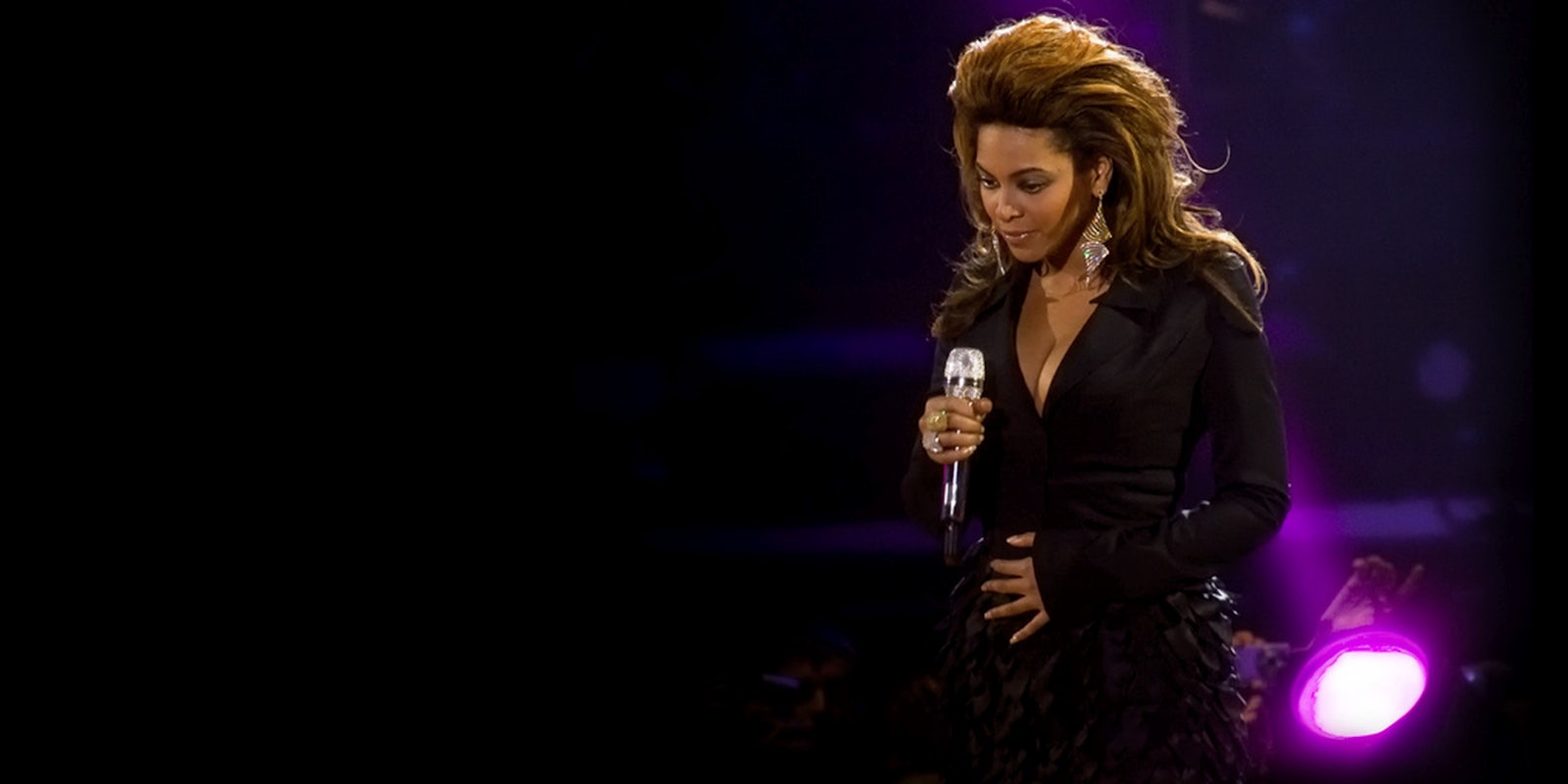BY KEVIN ALLRED
Beyoncé recently topped Forbes’s celebrity power list. “Who runs the world?” they ask. “In entertainment, it’s Beyoncé.” This resonates particularly with me, since for the last few years I’ve been offering the first university course on this influential and powerful woman.
The course is called “Politicizing Beyoncé.” It looks at her music and career in order to relate her fame and celebrity to the history of black feminism in the United States. Her new status as our entertainment leader serves to reinforce that this is a course worth offering and that by analysing Beyoncé, we are also analysing the culture and world around us. I’ve been denigrated and scorned from various quarters for offering such a “flimsy” subject for study, but why can’t culture be studied as it’s happening? It needn’t be old to be worthy of intellectual interest.
Beyoncé is known as many things: a singer, songwriter, actress, performer, mother, wife, and now, according to Forbes, the most powerful entertainer working today?—?but still, few take her seriously as a political figure or object of intellectual curiosity.
Some of that may now be changing, particularly because she’s recently put a lot of emphasis on feminism in her music and writing. Her new album, BEYONCÉ, is self-consciously feminist, and she penned a short essay for the Shriver Report denouncing gender equality as a myth. But, even as she has cautiously entered this political arena, she’s not thought to have much to do or say about the politics of race, gender, sexuality, and class in the U.S. or beyond.
Over the course of a semester, I attempt to position Beyoncé as a progressive and feminist figure through close examination of her music alongside readings on political issues, both contemporary and historical, by classic black feminist thinkers and writers. I encourage students to question what, if anything, has changed in the interim between these black feminist texts and the release of Beyoncé’s latest music. I ask if her music videos?—?through the visual images they put forward?—?challenge the same structures of power that any of these writers did. By juxtaposing her music with these writings, students are asked to interrogate if her work can be seen as a blueprint for progressive social change. And they are encouraged to think about what form social change does and could take, not in the past, but today.
Let me give you an example. We’ll look at a song like “Partition” alongside readings by bell hooks. I’ll ask why Partition is one of her most visually explicit videos, despite not being lyrically that sexually explicit. I push students to think about this video and song as performance.
When seen in this context, it becomes clear that Beyoncé isn’t sensationalising her own body and putting it on display for viewers to gawk at. Rather, she performs the historical objectification of black female bodies and replays that objectification in order to point out that, stereotypically, black women have had few means of garnering attention beyond sexual performances. She goes so far as forcing the viewer to be complicit in this objectification by positioning them as the direct viewer of the show she is enacting. This is a key, and necessarily political, distinction.
When not arguing that Beyoncé herself is unworthy of study, some other opponents of the course have taken issue with my pairing highly-regarded black feminist writers with Beyoncé’s music. While I’m not making explicit political comparisons with the likes of Angela Davis, Alice Walker, or Sojourner Truth (all of whom are assigned in the course), I do think that performances by black women in pop culture, particularly Beyoncé, speak to the very same trajectory of black feminism as the previous authors mentioned.
Academia desperately needs to escape this overly rigid emphasis on validity of sources. We need to look to the ways young people are learning about and engaging with the world, and encourage a critical perspective through them. More often than not, students in my classroom have been introduced to feminism (and black female empowerment specifically) by Beyoncé herself, which has led them to authors like Audre Lorde, June Jordan, and Kimberlé Crenshaw (all of whom, again, are assigned in my course).
Through this very immediate focus on the way historical and contemporary concerns are present in Beyoncé’s music, students are also encouraged to think of their own lives, regardless of the background of their identities, as political. I believe that this kind of teaching is the future of education.
When I first taught the class in 2010, it was easier to write Beyoncé’s music off as inadequate for critical academic enquiry. But it’s becoming harder and harder to do that these days. Not only has Forbes named her the most powerful celebrity?—?she also leads Time’s 100 most influential people this year.
With these continuous accolades she has undoubtedly proven that she is a force to be reckoned with. And as a black woman still living and grappling with the U.S.’s history of racism, these achievements speak volumes. A powerful critique of gender, race, sexuality, and class relations in the United States can be harvested from analysing Beyoncé’s career, music, and videos, and I am proud to engage my students with such a thoroughly contemporary and discerning outlook.
Kevin Allred has taught extensively in WGS and American Studies at Rutgers, including his own signature course: Feminist Perspectives: Politicizing Beyoncé. For his dissertation project, he is interrogating U.S. black feminism through the sonic register, reframing debates over intersectionality versus assemblage through taking careful account of the sounds black women’s voices make, both live and recorded. This article was originally featured on Medium and The Conversation and reposted with permission.
Photo via nonu photography/Flickr (CC BY 2.0)


